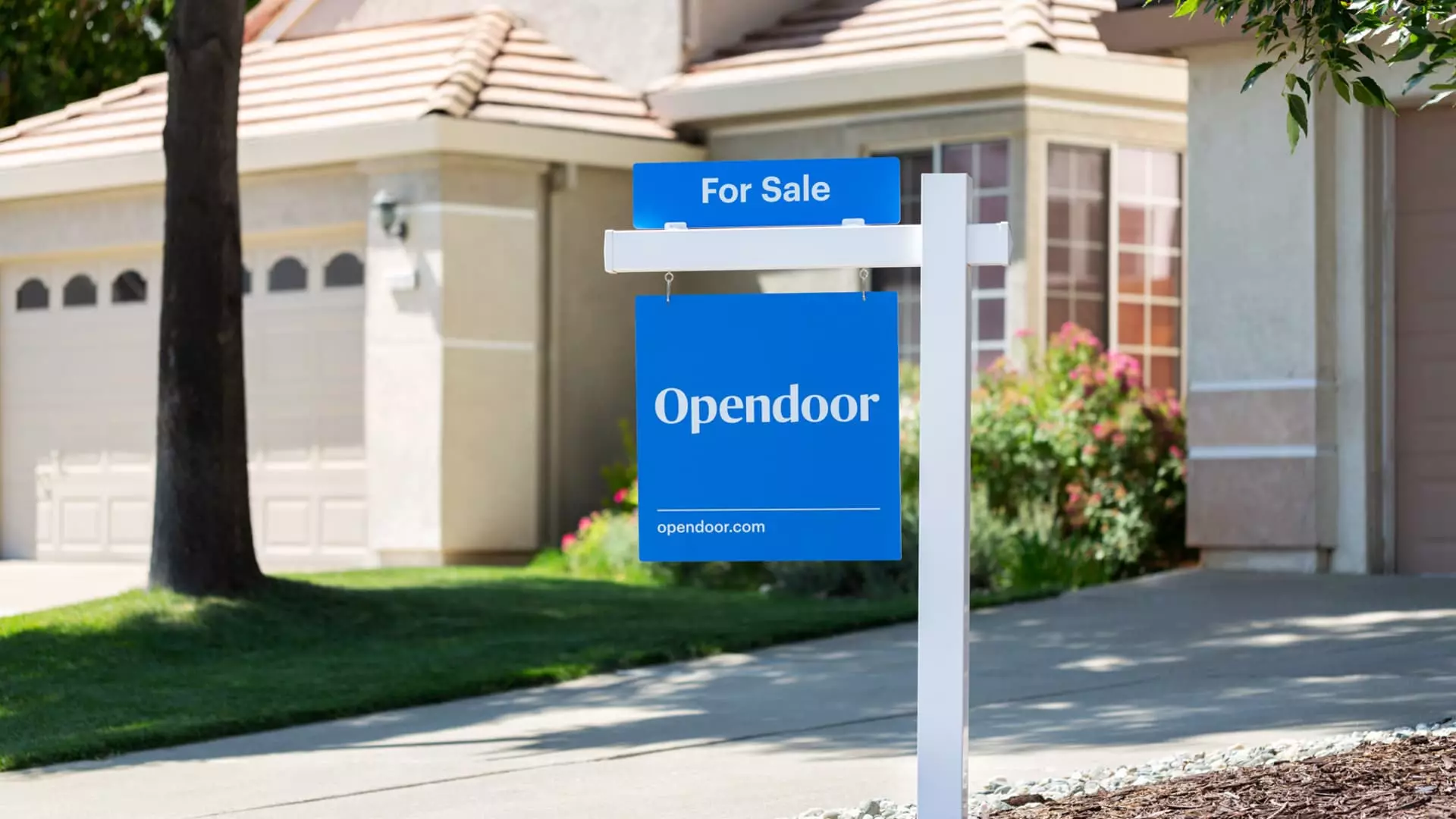In recent weeks, Opendoor Technologies has transformed from a nearly forgotten penny stock into a symbol of Wild West trading fueled by amateur investors on Reddit and other online platforms. What began as a modest online curiosity quickly morphed into a speculative frenzy that exposes the fragility of modern financial markets. Instead of reflecting genuine business growth or innovation, this surge demonstrates how hype, social media advocacy, and short-term traders’ greed can distort the value of a company, especially one that has yet to establish solid fundamentals.
The appeal of meme stocks like Opendoor lies not in their earning potential but in their volatility and the thrill of “making it big” overnight. Retail traders, often driven by the allure of social validation and collective action, push share prices into the stratosphere based on hype rather than proven performance. This is not investing; it’s gambling wrapped in the veneer of democratized capitalism. When stocks like Opendoor suddenly surge by over 500% in a matter of weeks, it reflects an underlying disconnection from real economic value, risking a brutal awakening once the hype subsides.
The Dangerous Rise of Speculative Trading
What makes Opendoor’s recent rally particularly unsettling is the confluence of factors that amplify its volatility. High trading volumes—billions of shares exchanging hands—are often a sign of panic buying and short covering rather than confidence in the company’s future. Nearly a quarter of the available shares are shorted, creating a scenario ripe for a classic short squeeze: short sellers rush to buy shares to cut losses, propelling the stock even higher in a dangerous feedback loop.
Options trading adds fuel to the fire, with the rising open interest in call options magnifying the move. Market analysts warn that this phenomenon creates a fragile bubble, where the entire rally hinges on speculative bets rather than intrinsic corporate value. The spectacle is reminiscent of prior market manias, reminiscent of the post-2020 hype bubble driven by low interest rates, liquidity flooding, and widespread pandemic-induced euphoria. The danger lies in the eventual reality check—when social sentiment turns sour, and reality reasserts itself, investors could face significant losses.
The Broader Implications and a Wake-Up Call
At the core of this frenzy is a fundamental issue: the destabilizing influence of social media and online forums on traditional investing. While democratization of the markets can democratize opportunity, it also opens the door to massive speculation based on hype rather than sound financial analysis. This phenomenon challenges the very nature of markets as allocations of capital based on value and performance, not memes and hashtag-driven narratives.
From a centrist liberal perspective, this episode underscores the importance of regulatory oversight and investor education. We should advocate for safeguards against manipulation and reckless speculation that threaten market integrity. While retail investors have every right to participate, their involvement shouldn’t come at the expense of prudent analysis or the stability of the financial system. It’s also a reminder that true economic progress depends on supporting companies with sustainable models, not chasing fleeting trends that can vanish as quickly as they appeared. The recent ascent of Opendoor is less a vindication of its business prospects and more a testament to the risks of crowd-driven manias in an era of information overload.

